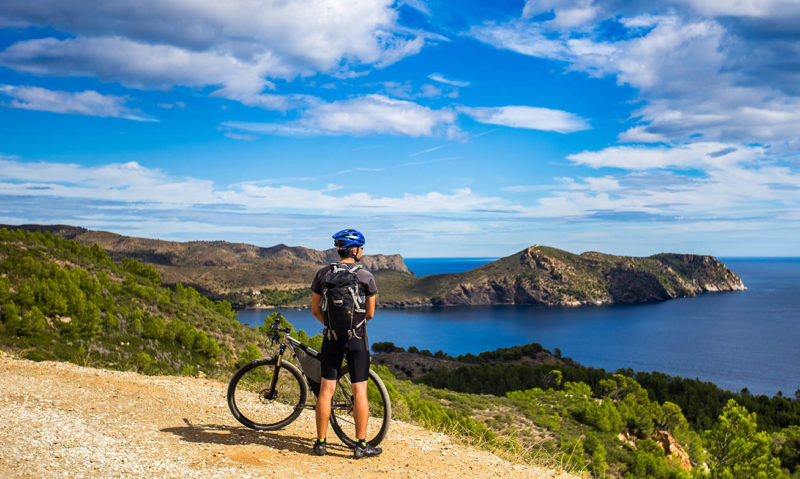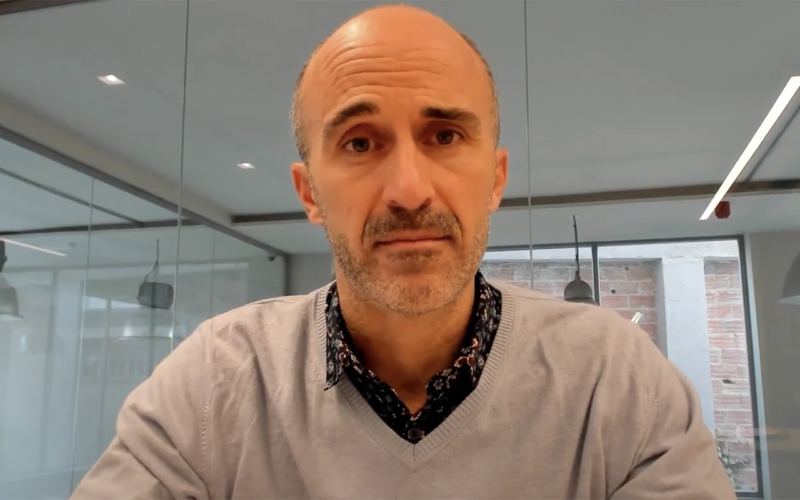

Sustainable tourism
Tourism is one of the businesses that shows one of the highest capital flow worldwide. As per the report from the United Nations World Tourism Organisation (UNWTO), in 2019, 1.4 billion of international tourists were recorded and up to between 100 and 120 million of jobs are linked to it.
It is, therefore, a sector with an undeniable weight in the world’s economy, and more particularly, with a direct affectation to practically all the inhabitants in the planet either in an active form as travellers or in a passive one as locals.
The touristic sector asks for regulation and responsibility
Given its importance, since years ago there are more and more organisations, Companies and collective bodies that ask for a sustainable tourism system that can be kept over time and nourish the population. Everything points to the fact that this industry will continue growing during the next years and, therefore, if the current model does not change, the negative impact that it generates will increase at the same rate. We are all currently familiarised with sustainability as a concept and we even have adopted certain daily routines that contribute to respect the environment. An attitude that changes more or less when we travel: we leave lights switched on, recycling, take care of public spaces, using more ecological transport ways, spend the necessary water, using less plastic … actions that we may miss when we are on holidays and which, by themselves, do not generate an impact, although they may mean a higher issue when they are multiplied by 1.4 billion people.
Within this context, and with the urgency to change the touristic model into a more responsible perspective, it pops-up the sustainable tourism concept, understood as the one which “satisfies current needs without compromising the capacity of future generations to satisfy their own needs”, as it is described in the Brundtland report. It will be about then, to minimise the negative impact that tourism is currently generating and to maximise its benefits, mainly from the three big pillars: environmental, sociocultural and economical.
To reduce the environmental impact to preserve future
Tourism very much depends on the environmental quality to survive and evolve but, paradoxically, this is one of the main activities that it harms. Infrastructures construction like airports and roads, highly polluted transport ways by land, sea and air, creation of equipment and touristic resorts like restaurants, shopping centres, golf fields or sportive areas are examples of the negative impact that it brings to any region. All of this brings also risk to the flora and fauna in the area, which in the past years has worsened the situation of hundreds of species, especially the marine ones, which have not been able to overcome the changes that human pollution has caused in their natural habitat.
In parallel, it has been thanks to tourism that some natural areas have become protected areas or they are areas with especial care being taken orientated to preserve the space looking forward to the future. This is the positive impact where sustainable tourism should be betting: to achieve the maintenance of care of spaces both natural and urban, by governments’ organisms to favour both, local citizens and future visitors.
Controlling the sociocultural impact and to bet for the diversity wealth
The willingness to often travel comes motivated by the restlessness to know other Countries, together with everything that this implies: culture, language, food and costumes. Diversity within the globalism is foreseen, and this arouses respect, tolerance and knowledge by both parts, but especially from the visitor’s point of view. For sustainable tourism it is essentially this cultural preservation but, amongst everything the respect for it. Guaranteeing a value experience therefore, must mean to guarantee sociocultural wealth.
A non-planned tourism, other than being a nuisance to local inhabitants, can bring miserable consequences on their lives and their quality of life, an issue that some areas of Catalonia have already suffered first-hand in terms of gentrification, this is a disproportionate increase of dwellings’ and plots’ prices that turn into, those being inhabitants, to look for more economically viable alternatives, giving way to those who can invest, a fact that may not have a direct relation to tourism in some cases but which, without doubt, has meant an aggravating item.
The increase in prices in touristic is one of the reasons to destabilise local people, forcing them to assume higher prices, well above the standard prices they could find in any other street of the city outside the touristic path. If we look at Barcelona, coronavirus crises forced many restaurants in touristic areas to lower their prices to match those offered in the rest of the city, showing the prices war that tourism business means. Avoiding this through regulation policies could not only protect local citizens but ensuring tourists pay for the right price of the product.
Positive economic impact: investing in people
From and economical point of view, it makes sense that as a business, tourism should bring benefits to the related area, but the challenge is making it in an equitable and sustainable way. It will bring nothing to improve the turnover if this does not bring a positive impact in the welcoming area. This is, to have a true benefit it has to mean an advantage to all implied parties and, if managed in a controlled and efficient way, tourism can have the enormous power of enriching the population through the creation and maintenance of jobs both, direct and indirect.
On the contrary some multinationals, way away from applying a sustainable tourism system, choose to do the other way around, what is known as “scape”. These are business models where profits are not left in the welcoming Country nor bring any profit to the Country, like in hotels with an all-inclusive regime, where customers do not go away from the resort and, therefore, do not generate a positive impact to the area’s economy. They do create an impact indeed but negative as far as taxes is concerned, since the required infrastructures to welcome tourism are often financed through this business. It will require though to weight the generated impact of tourism against the cost that population pays for. If there is no balance, then we are presumably facing a non-sustainable system and which will need to be revisited.
Tourism is in the end, our joint responsibility since we have all been involved for some time. There are actions that depend only on the individual responsibility and commitment to bet for a sustainable life model, also when we travel. The other side of the management, and that with a higher impact, belongs to the private and public organisations that will need to plan tourism facing next coming years with a clear motive: a bet for sustainability is a bet for the future.
Do you love to travel? With 11Onze Viatges you can book accommodation at the best price, without stifling the travel industry.





Article complet i interessant.
Moltes gràcies, Pere, celebrem que t’hagi agradat!!!
Efectivament, el turisme cal regular-lo, no es pot deixar crèixer sense control al turisme, perquè al final es carrega el barri local inflant els preus tant, que els veins del barri els hi toca marxar, deixant un barri local de veïns que acaba transformant-se en una mena de Parc temàfic sols accessible a l’abast dels turistes😱
Tens molta raó amb el que dius, Jordi, i moltes gràcies pel teu comentari!!!
👍 Molt bon article
Moltes gràcies, Manel!!!
👏
Gràcies, Daniela!!!
hem de ser ecologics
Cert, Manel! I tant que hem de ser ecològics, i el turisme també és important per aconseguir-ho. Gràcies pel teu comentari, ens veiem per La Plaça!
👍
Gràcies, Joan!!!
Suposo que aquest article és una simple descripció o introducció als problemes i virtuts del turisme. És o ha estat el meu gremi fins ara.
Però confesso que m’han esgarrifat algunes afirmacions. La principal, parlar de regulació de preus. No m’esperava afirmacions com aquesta en la web d’un banc.
Hola Francesc, gràcies pel comentari. El nostre objectiu és que la nostra comunitat, que esperem que sigui tan gran com sigui possible, es beneficiï no només dels productes que, aviat, podrem oferir, sinó que realment es pugui beneficiar de tots els aspectes relacionats amb l’economia. Som conscients que el sector del turisme és molt important per l’economia, sabem que en general i més en temps de crisi, si no està ben gestionat i controlat, pot derivar en maldecaps per ambdues parts: els turistes i els locals. Benvingut a la Plaça!
Com mes llegeixo aquets articles mes me’n don compte de lo inportan que es està ben informat. Molt bon article .
Totalment cert, i és que al cap i a la fi la informació és poder, sigui a l’àmbit que sigui. Gràcies per les teves aportacions, Manel!
M’agradst llegir aquest articke del turisme, aquest turisme des, de la visió de la sostenibilitat però no unicament de l’economia i del medi ambient, també i important del cultural
Bon article
Polítiques reguladores a la restauració sobre productes com el ví, l’aigua, refrescs en els que carreguen moltes vegades mes d’un 100%.
Moltes gràcies pel teu comentari, Sergi. Ens veiem a La Plaça!
Com sempre, aconseguir un bon equilibri entre el medi ambient, l’economia i la societat, no és fàcil, però és ben cert que la crisi del coronavirus ens brinda una nova oportunitat per intentar-ho, aprofitem-la! Bon article, gràcies